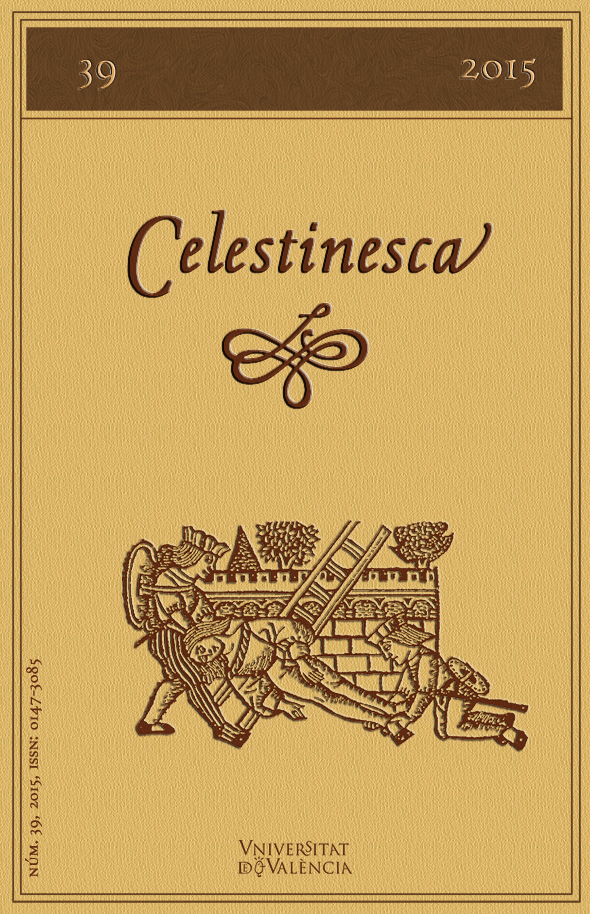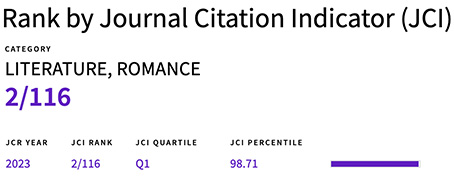La Celestina , el humanismo vernáculo y la invención literaria
DOI:
https://doi.org/10.7203/Celestinesca.39.20174Keywords:
Fernando de Rojas, Juan de Lucena, Antonio de Nebrija, vernacular humanism, moral philosophy Abstract
Abstract
If Celestina was conceived in Salamanca at the end of the 15th century, then the humanist ideas that were circulating necessarily had an impact in its creation. In this essay we focus on some ideas that appear in the work —especially those exposed in the opening epistolary prologue— and in the links between them and the thoughts of representative Castilian writers of the time, like Juan de Lucena (1431-1504) and Antonio de Nebrija (1441-1522). Ideas on the didactic value of fiction and the importance given to the creation of literature written in the vernacular language are in agreement with ideas advanced by the Castilian vernacular humanism of the second half of the 15th century in translations, epistolary exchanges and the dissemination of moral philosophy.
 Downloads
Downloads
Downloads
Published
How to Cite
-
Abstract749
-
PDF (Español)396
Issue
Section
License
![]() Celestinesca is committed to the dissemination of knowledge, that is why access to its contents is free and is ruled by a Creative Commons Attribution-NonCommercial-NoDerivatives 4.0 license.
Celestinesca is committed to the dissemination of knowledge, that is why access to its contents is free and is ruled by a Creative Commons Attribution-NonCommercial-NoDerivatives 4.0 license.
Authors retain the rights to their works. Therefore, they can disseminate them and deposit them in the repository, institutional or not, that they wish. However, they are kindly requested to do so by providing the full bibliographic reference and the corresponding DOI.
Celestinesca does not charge authors for submitting, processing, reviewing or publishing their articles.





